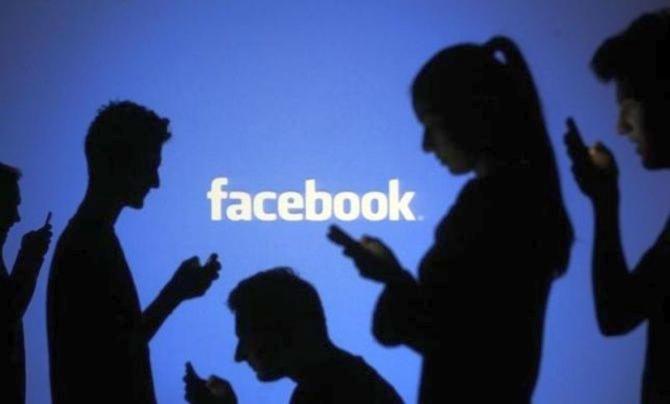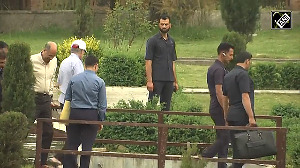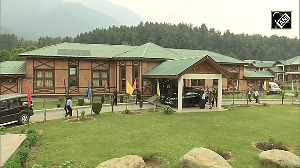Adversarial Harmful Networks -- India Case Study, cited in Facebook whistleblower Frances Haugen's SEC complaints, revealed, among other things, that Facebook was a preferred platform for 'fear-mongering anti-Muslim narratives' in India, observes Devangshu Datta.

It was a bad week for The Social Network.
A fumble with routing Border Gateway Protocols (BGP) led to an epic multi-hour shutdown of Facebook, WhatsApp and Instagram.
Facebook also faced very damaging accusations from a whistleblower.
Data scientist Frances Haugen, who quit Facebook in April, pointed to leaked studies to back up her assertions that Facebook encourages toxic content on its networks in its relentless pursuit of profits.
The BGP mix-up led to direct losses for millions, and of course, for the network itself.
Ms Haugen's revelations added another crucial set of data-points that could induce legislators and regulators into acting to rein in the digital giant.
Taken together, this emphasises something we knew: Monopolies are bad. Be it nascent sectors, or old economy; monopolies are always bad.
The BGP outage is easier to quantify and understand.
Facebook lost well over $500,000 for every hour it was down, just going by ad revenues.
It would also have to spend vast amounts on disaster recovery systems to ensure that this type of outage doesn't recur.
Businesses depending on Facebook, WhatsApp, or Instagram, for engagements with customers and potential customers, closing deals, and maintaining associate relationships, also suffered huge disruptions. Quantifying those losses is difficult.
Some of these businesses are massive -- banks and transnational corporations use these networks.
Some are tiny 'shops' run by individuals -- grandmas selling home-made pickles.
But the losses incurred would be many multiples of the direct hit Facebook took in ad revenues, since businesses allocate only a percentage of revenues to ads/marketing.
What's more, due to the dominance of Facebook and its subsidiaries, there are no alternative channels to migrate work-loads.
Facebook may be able to create an effective disaster-recovery plan. Regardless, competition is necessary.
The world needs alternative instant messenger platforms and digital imaging platforms, with the same characteristics of strong network effects, guarantees of end-to-end encryption (for whatever that's worth), and ease of use.
Ms Haugen has filed multiple complaints with the Securities and Exchange Commission, the US market regulator, and at the non-profit legal organisation, Whistleblower Aid.
She has also testified to the US Congress, and given media interviews.
She has asserted much of the content on Instagram is known to damage the mental health of young people, according to Facebook's own internal studies.
She has also stated Facebook content is toxic and 'weakens democracy'.
She cited many leaked internal studies, which came to these conclusions, before being ignored in the search for profits.
The Cambridge Analytica scandal of 2016 showed that the Facebook platform was then weaponised to influence the Brexit Referendum result.
Fake news on Facebook generated by bad actors out of Eastern Europe, also contributed to Donald Trump's electoral victory.
Ms Haugen referred to several more recent studies. These included a leaked internal Facebook document, Adversarial Harmful Networks -- India Case Study, cited in the SEC complaints.
This study says, among other things, that Facebook was a preferred platform for 'fear-mongering anti-Muslim narratives' in India, with fake content created, distributed and promoted by a network of RSS workers, using multiple accounts each controlled by single users.
Ms Haugen also cited claims in internal documents that '40 per cent of Top VPV View Port Views, or impressions) of civic posters in West Bengal (in the run-up to the 2021 assembly elections) were fake/inauthentic.'
'The highest-VPV user to be assessed as 'inauthentic' had more than 30 million (impressions) accrued in the last 28 days.'
Anybody who uses WhatsApp in India is also undoubtedly aware of similar content being pushed out through WhatsApp messenger groups.
Despite disclaimers from Facebook, Ms Haugen's accusations seem to ring true.
This brings us back to the monopoly issue.
People use Facebook and its subsidiaries for many reasons, ranging from casual interactions with friends, to generating income in various ways.
Users cannot step off these platforms because there are no practical alternatives.
This means constant exposure to toxic garbage.
Regulators and legislators clearly need to find ways to enable competition, and to enforce better content moderation.
Neither task will be easy. This is especially true because political formations, which have successfully used these platforms to spew out toxicity, would have to undermine their own outreach models.
Feature Presentation: Aslam Hunani/Rediff.com











